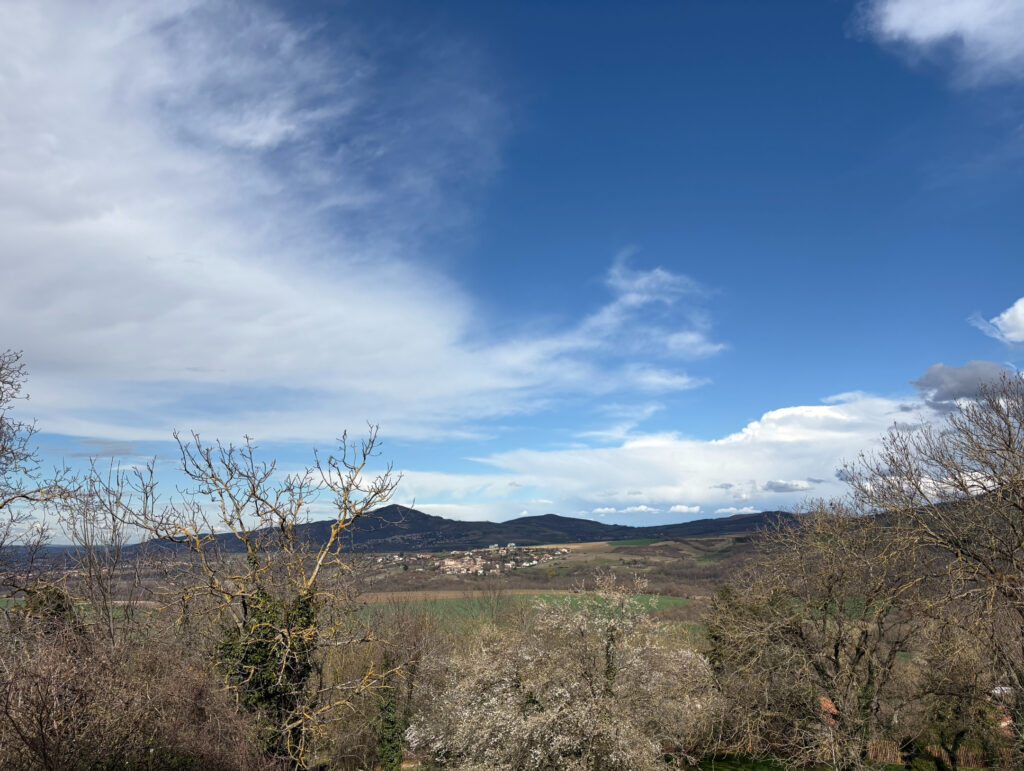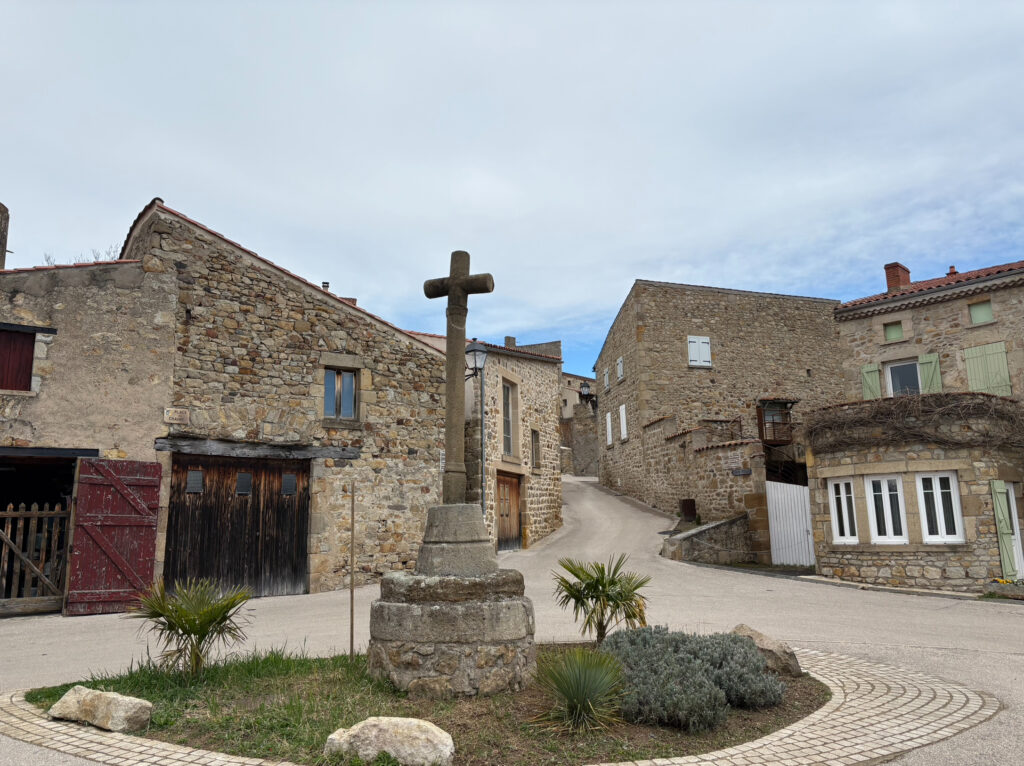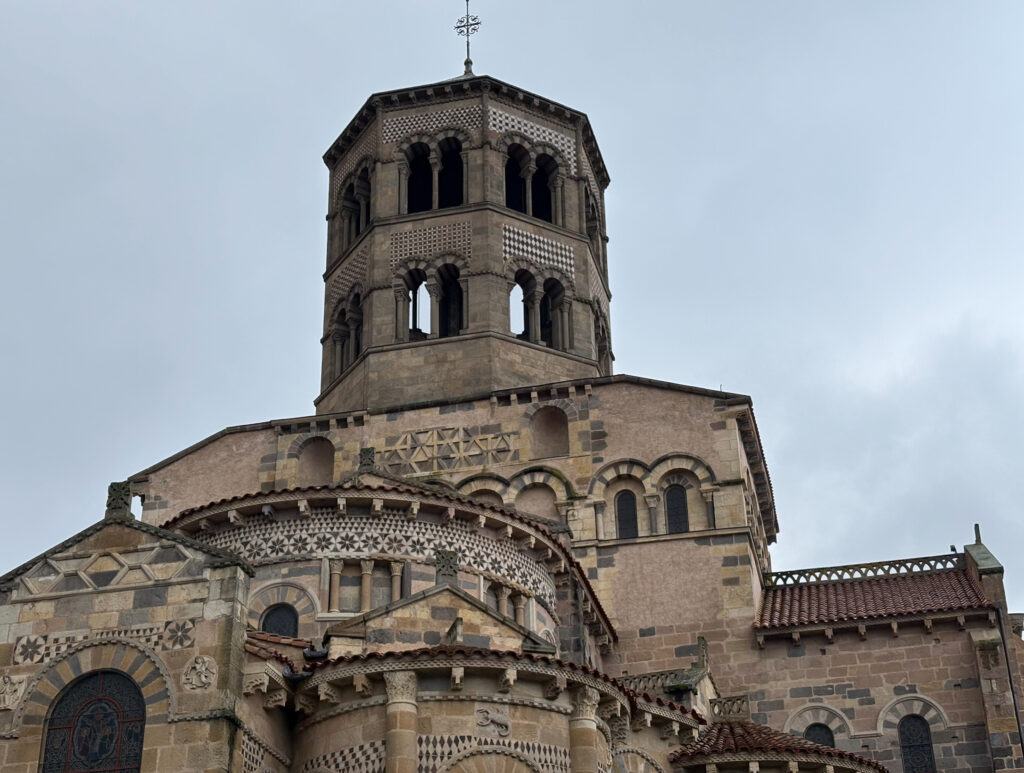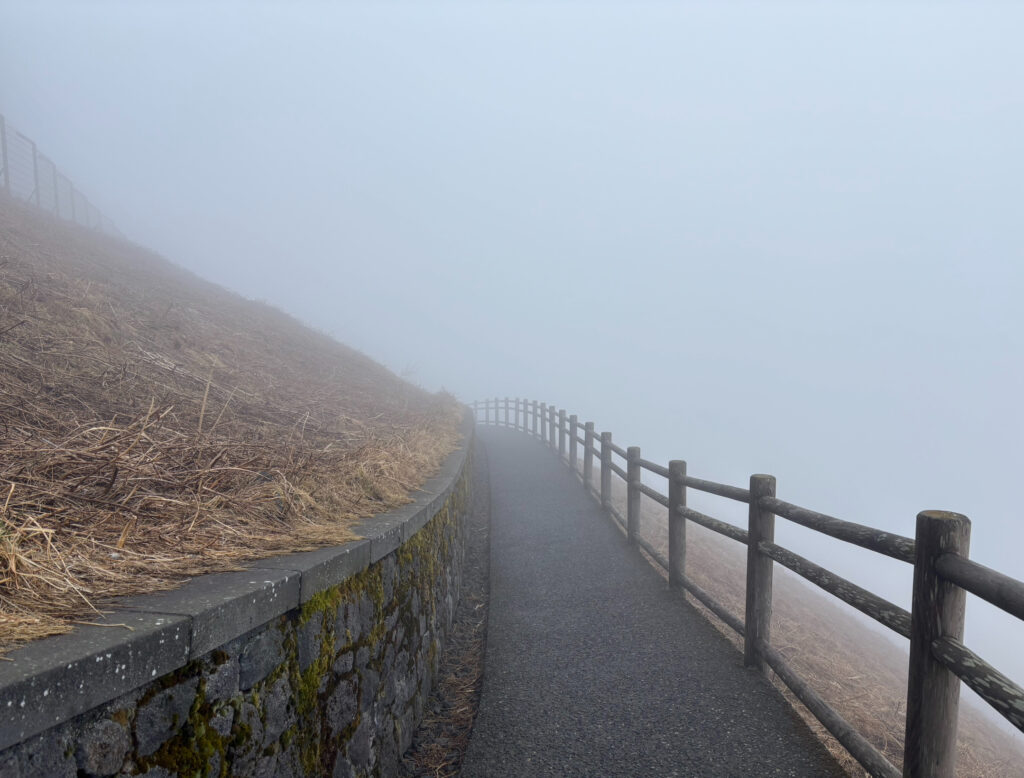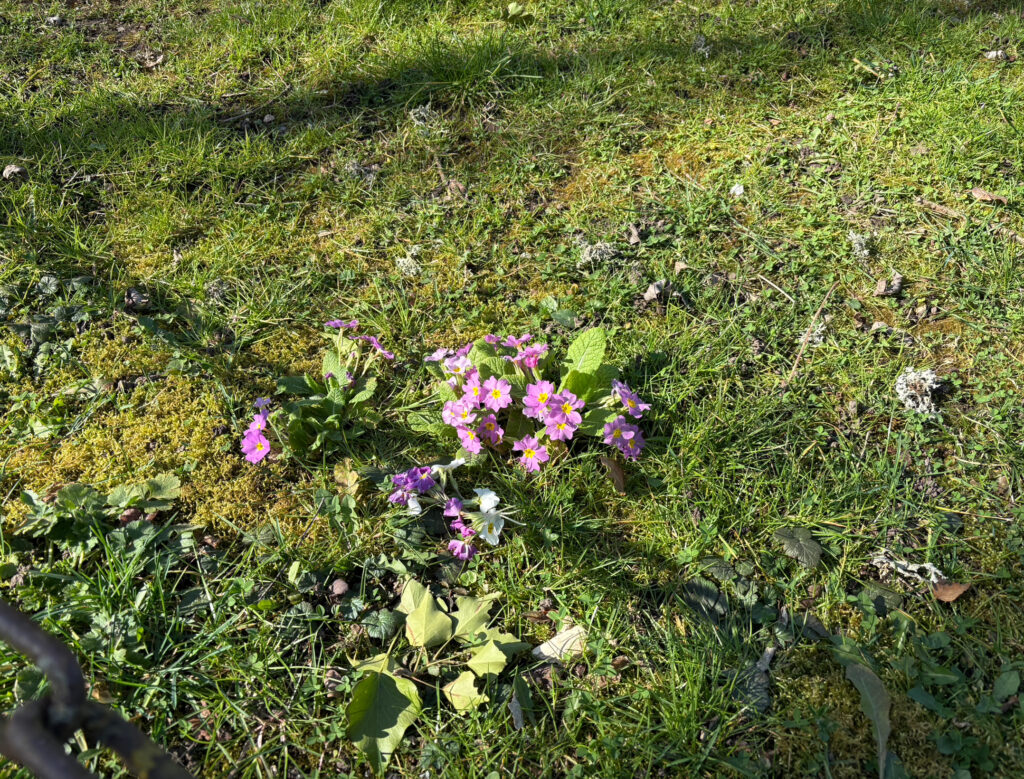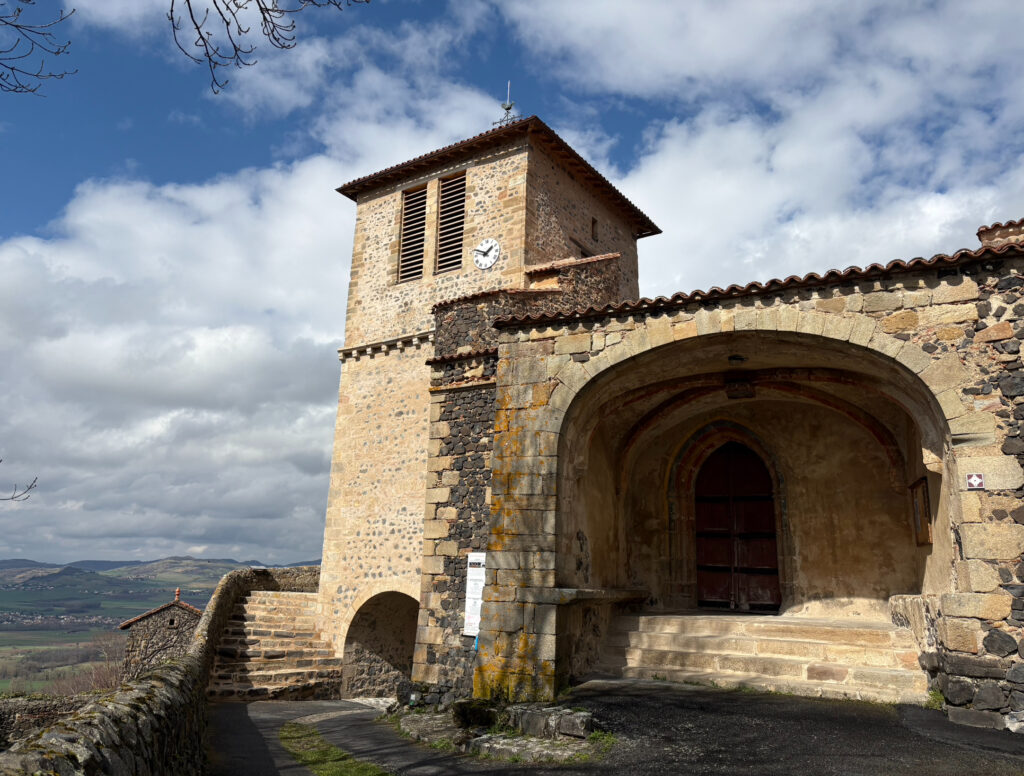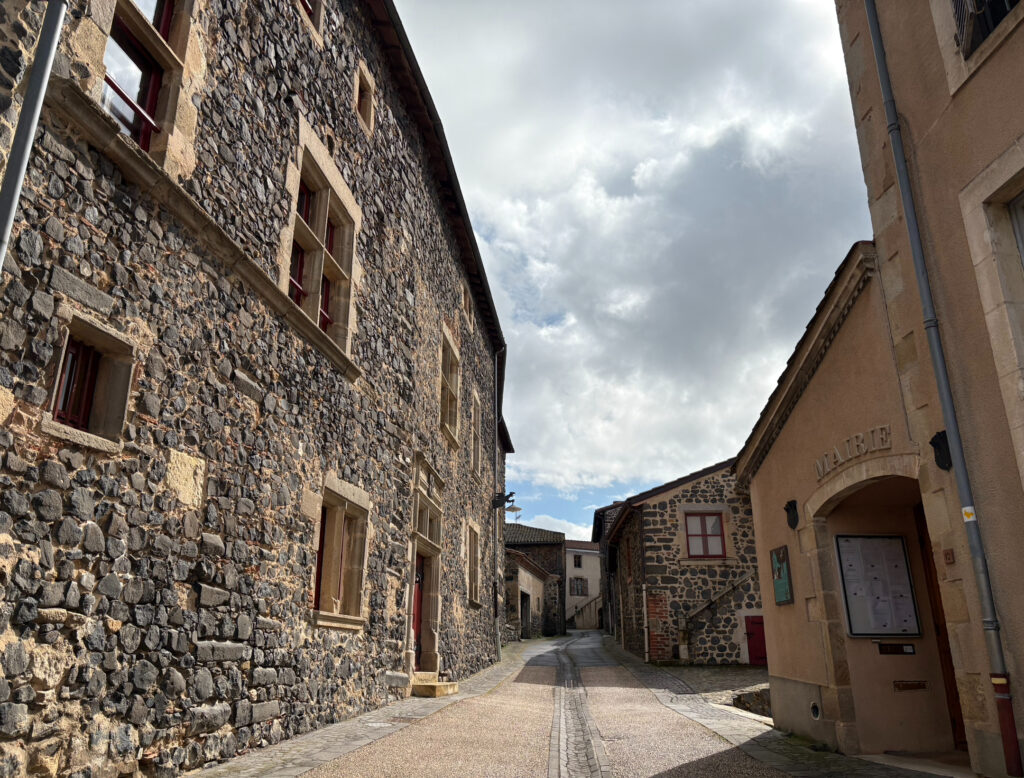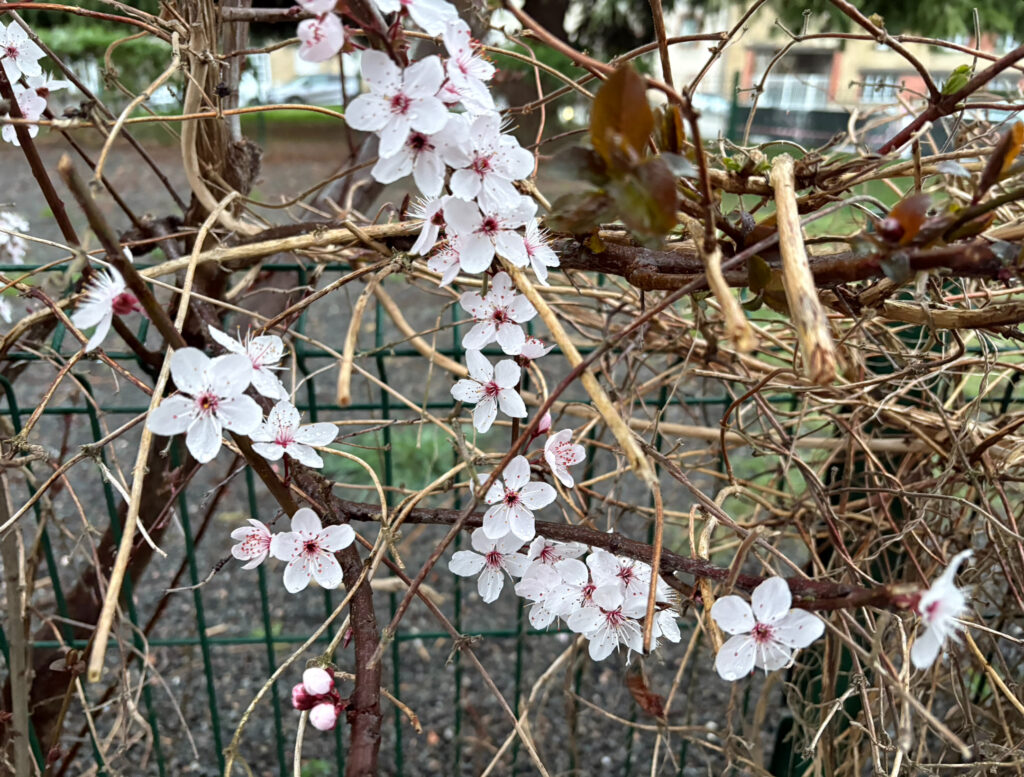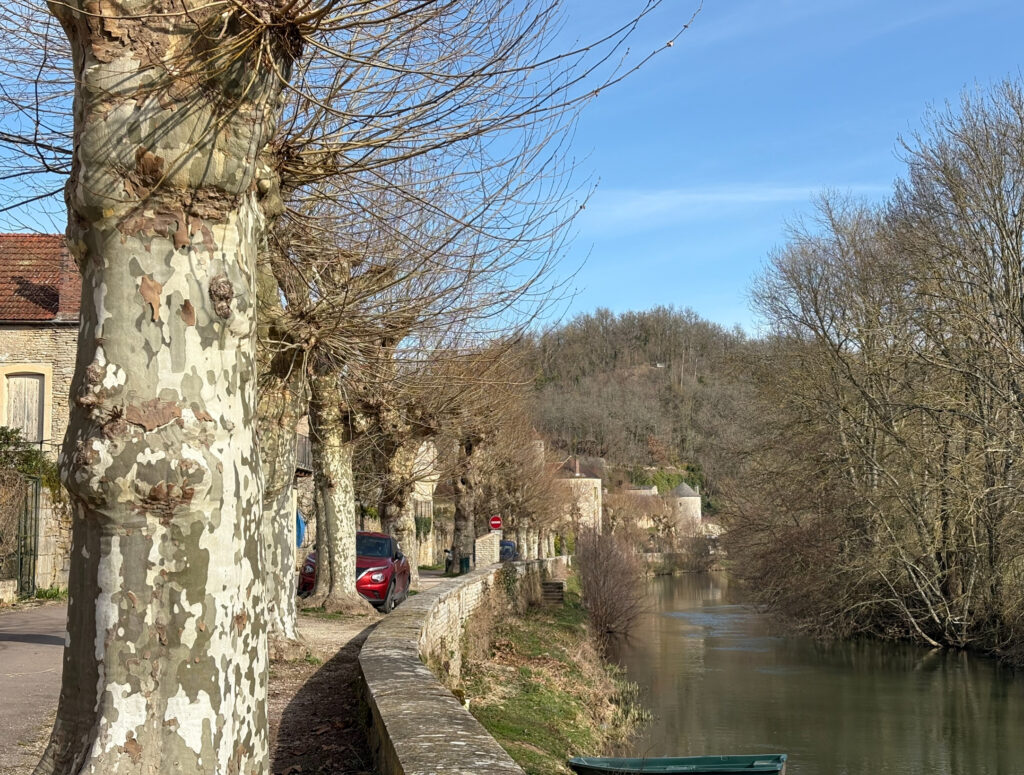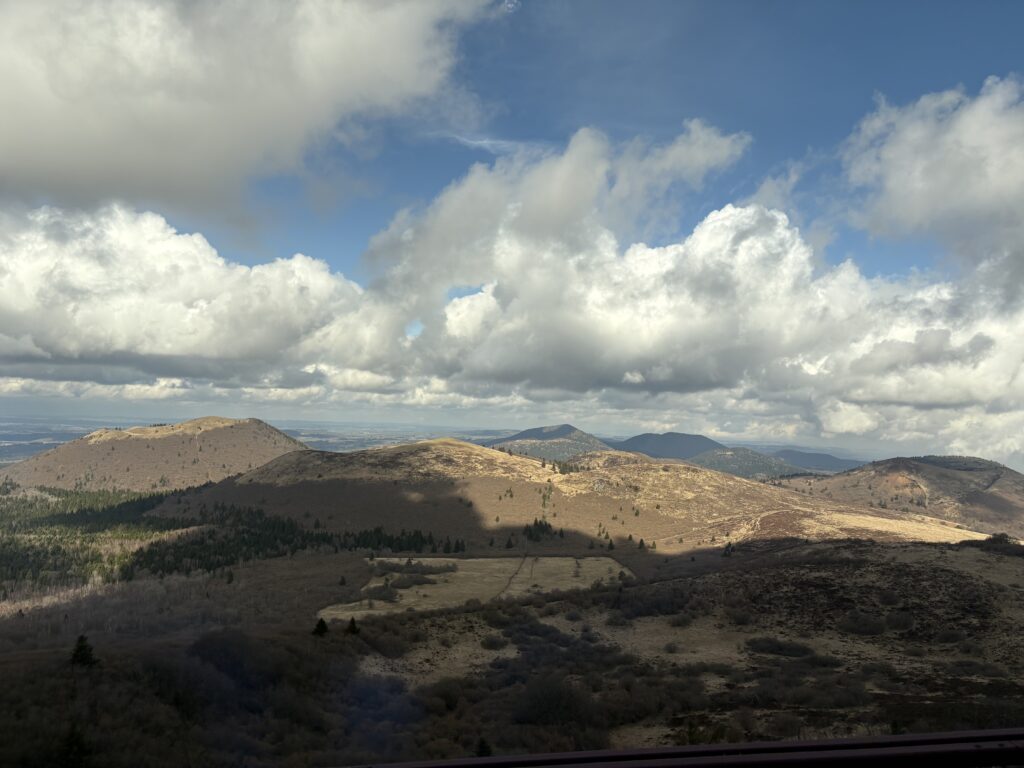
ChatGPT:
The road bends slow where ancient ridges rise,
Stone villages like thoughts upon the hill,
Each shutter closed, yet watching with old eyes,
Each bell a pulse beneath the valley’s still.
No crowd, no voice, the paths are mine alone,
Save wind that slips through cracks in mossy wall;
My tread is quiet as the hills I cross,
My shadow lengthens with the twilight’s call.
No map but sense, no clock but fading light,
I walk not seeking more than what I leave.
A string, a coat, a room against the night,
Enough to breathe, to see, to not believe.
The world moves loud. I move through it unseen.
The soul walks best where silence keeps it clean
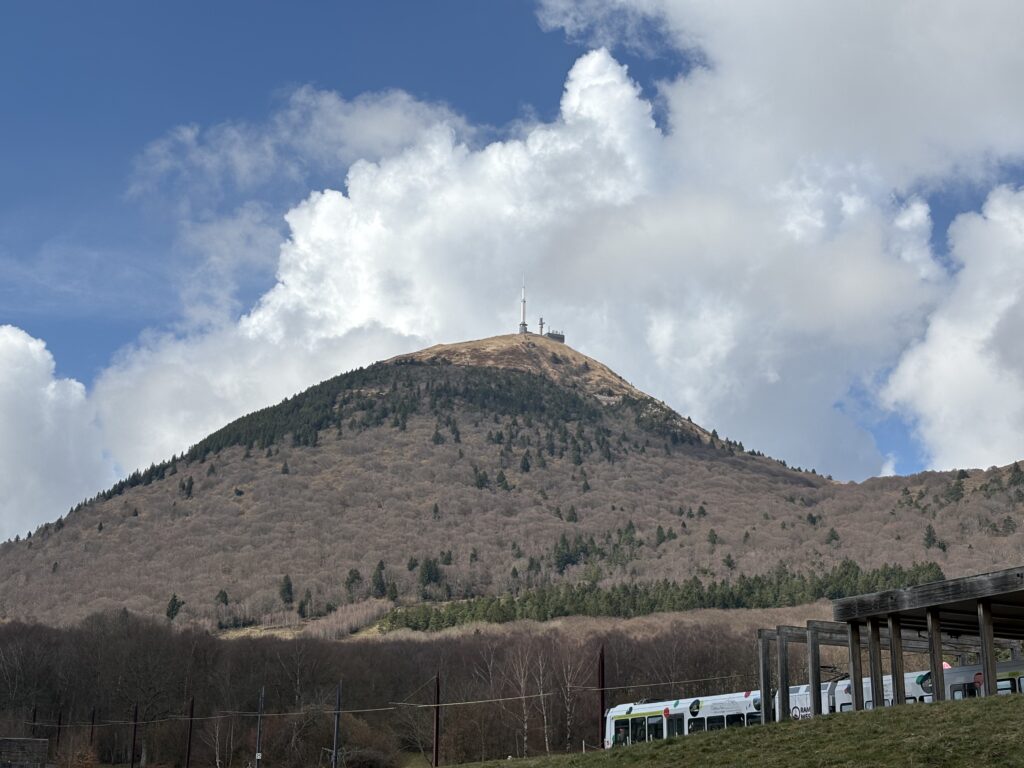
The road south from Riom was still stiff with frost the morning I left. The sky was pale, the air sharp, and there was no sound but the soft rhythm of my boots. I moved without hurry. The town fell behind me easily, and the land opened wide — folds of low hills and old fields, the kind that hold the memory of lava under their calm.
I passed no one. March is still early here. Trees stood bare, but not lifeless. Their buds were swelling quietly, like a breath being held. In the ditches, a few primroses had already opened — yellow and brave against the cold. You don’t find hope by looking for it. It just appears, unannounced, beside the road.
At La Font de l’Arbre, smoke curled from a single chimney. The houses leaned into the hillside, as if still dreaming through the tail of winter. A dog barked once behind a gate and then fell silent. I didn’t stop long — just enough to drink, to breathe, to watch the light shift on stone.
Montpeyroux rose gently from the valley, ochre-colored and still. I climbed slowly, letting the path tell me its pace. No one hurried me. I passed a closed church, a cracked fountain, a cat stretched across a sunny ledge. At the top, I sat beside the old tower ruins and looked out across the plains. The silence had depth to it — not absence, but something more like presence.
In places like this, time doesn’t seem to pass so much as fold over itself. The road behind me already felt distant. I carried no plans, only direction. That’s the best way to travel — not to seek, but to be open.
Later, after another stretch of road and soft descent, Usson came into view, perched on its volcanic rise. It looked like a place waiting for something — or nothing. The fortress ruins watched over the land in stillness; now it was only wind and the creak of branches. I climbed to the summit and let the wind press against me. The sky was restless that afternoon. I liked the way it felt — honest, without decoration.
From Usson to Issoire, the land grew gentle again. Ten quiet kilometers. I walked slowly. The trees along the road were tipped with buds, not quite open. Beneath them, crocuses and violets had begun to push through, delicate and defiant. There’s something steadying in their smallness — like a reminder that resilience doesn’t always look strong. Sometimes it’s just a soft petal against cold ground.
In Issoire, the basilica rose from the center like something planted, not built. Its stone was warm in the afternoon light, and I sat beside it for a long time, watching shadows move across the arches. People passed without noticing me. I prefer it that way. There’s peace in being invisible.
I slept that night in a quiet pension, the kind with uneven stairs and thick blankets. Soup. Bread. A chair near a radiator. Nothing wasted.
The next day, the trail led me upward again — through open hills, past still farms, into the wind. The horizon grew sharper as I climbed. Puy de Dôme waited, its crown wrapped in low cloud. I took the old path, the one mules once used — narrow, stony, made for slow progress. I didn’t mind. Slowness teaches you to see.
At the summit, the ruins of the Roman temple were empty of tourists and full of wind. I stood alone, surrounded by sky and ancient stone, and looked out at the sleeping chain of domes and peaks stretching east and west. No sound but the wind.
I never stay long at summits. They aren’t meant for lingering. You see what you need to, then go.
The inn I found that night was made of stone, tucked low against the slope. The room smelled of woodsmoke and age. I wrote nothing down. I never do.
There’s no story to tell, really. I walked. I watched. I moved quietly through old places that had no need to remember me. And that was enough.
